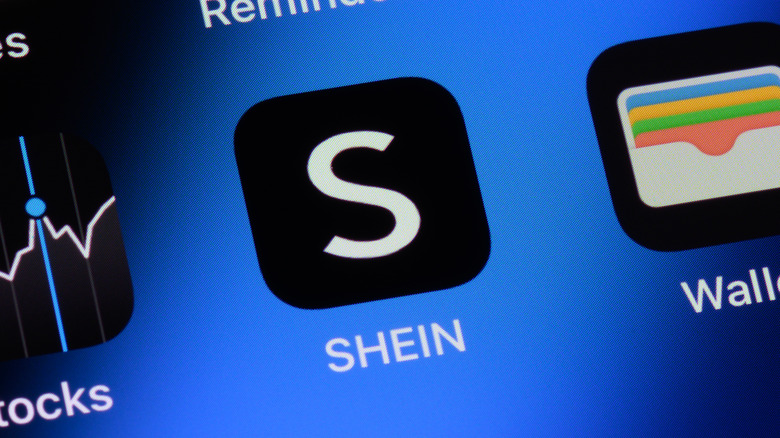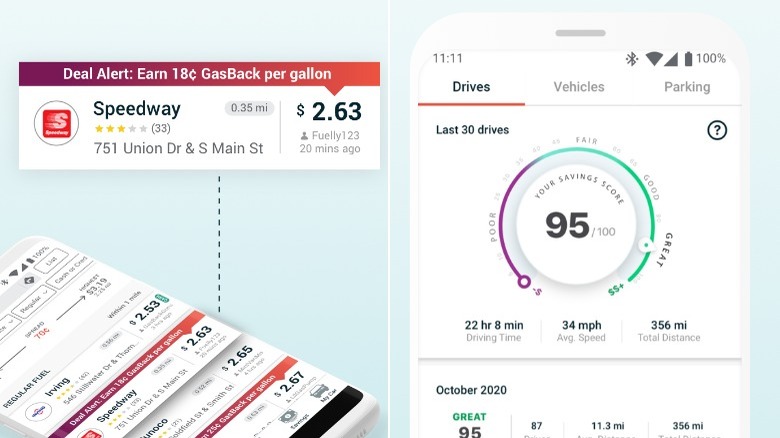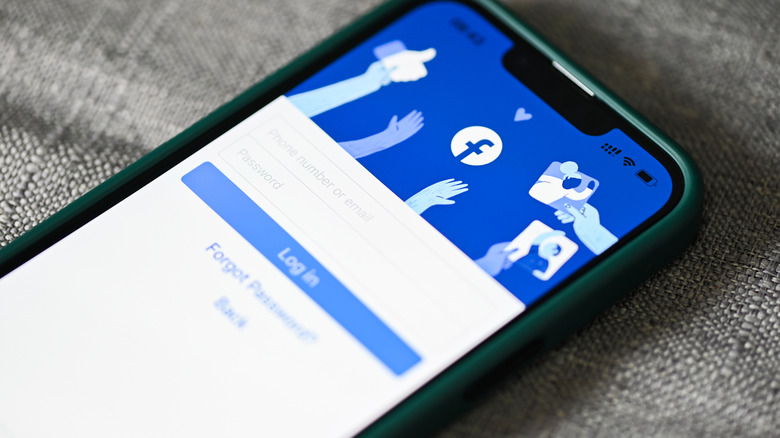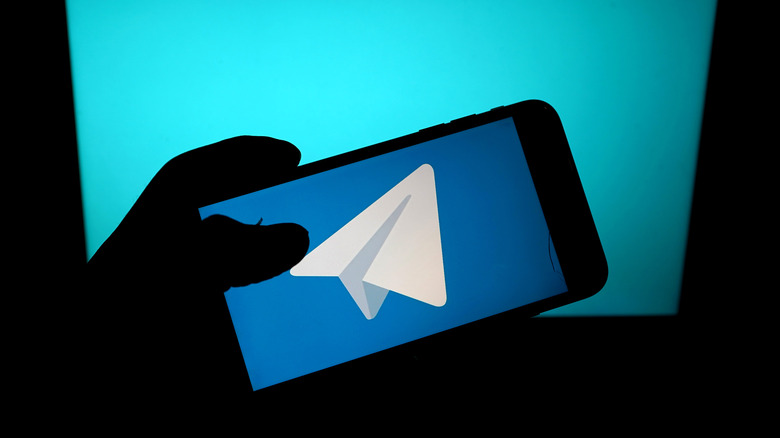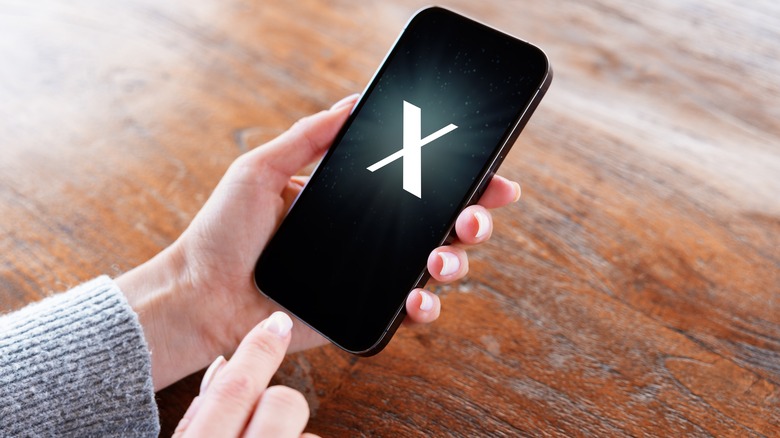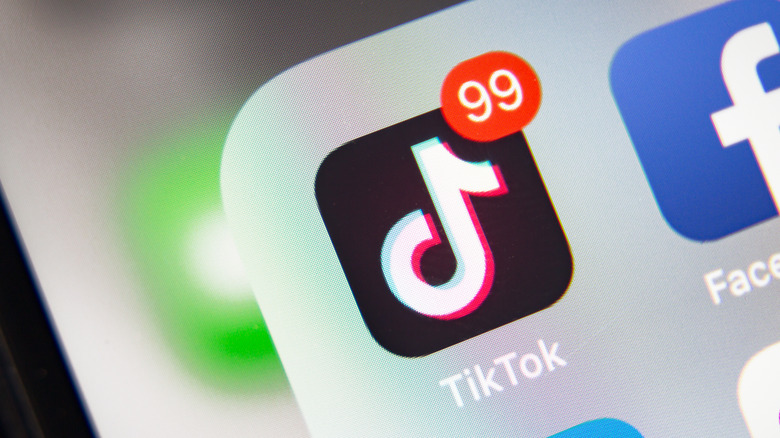11 Online Accounts You Should Say Goodbye To Forever
Not so long ago, most people would likely only have a few select accounts under their name. They might have a phone contract that would be billed monthly, a cable account to watch television, and bank accounts to manage their finances. That has all changed over the last two decades with the rise in the use of the World Wide Web. Now, it is not uncommon for everyday members of the public to have dozens of accounts for every imaginable service.
Whether it's the must-have streaming services so you can watch your favorite films and television shows, websites that allow you to shop online and have goods delivered directly to your door, or apps that make it possible to play games or keep up to date with your friends and family, pretty much every service now requires an account.
While most of these accounts are harmless, there are some situations where you might want to consider deleting your information on a particular website or app. There could be privacy concerns about the way data is collected and used, or the company might be embroiled in controversial business practices.
No matter the case, these are some accounts that you might want to say goodbye to.
Shein
Budget retailers are more popular than ever and among the most successful in the last few years in Shein. Based in China, the company has been around since 2008 but came to prominence in the 2020s after establishing itself as an international retailer. Recently valued at more than $100 billion and generating revenue of $24 billion in 2022, it has grown to become one of the most recognizable names in fashion and sells clothing and accessories around the world.
Like many businesses that have Chinese origins, there are concerns about the widespread collection of personal information that could be passed to authorities in the communist country. Yet, there have been no founded claims of Shein misusing any data it holds on its customers, so this isn't why you might want to delete your account. Instead, the problem comes from the way that Shein operates to keep prices so cheap, including allegations of forced labor and poor working conditions for those employed by the company.
Shein also has a large environmental impact, with the company producing vast amounts of clothes that end up in landfills. This is largely a result of shoppers not wanting to pay the high cost of sending items back to Shein for refunds or exchanges. Some items have also been deemed dangerous as they fail to meet safety requirements in terms of flammability. If all of that sounds like something you don't want to support, then you can delete your Shein account and buy from a different source.
YouVersion Bible
Religious apps are not the kind of software you'd expect to infect your Android phone with malware that you have to remove, yet they have become one of the worst offenders in recent years. Apps on both the Google Play Store and Apple's App Store contain thousands of apps that are designed to give users access to holy books such as the Bible or help them with their spiritual needs. Unfortunately, a huge amount of them either collect entire swathes of information, install malicious software on devices, or ask for almost every single permission so they can access every function of your smartphone.
The YouVersion Bible is a website and app that is available across a variety of platforms. It has a wide variety of Bibles available for users and offers them in every major language in the world, including in audio format. However, more than a decade ago, concerns were raised about the collection of user's personal information and the fact that it required access to things like a person's contact data, GPS location, and other invasive permissions to work correctly.
While YouVersion has tried to address some of these concerns in more recent years, the company's track record suggests you might want to consider removing your account.
GasBuddy
GasBuddy is a company that offers a way for drivers to find the cheapest gas locations. Considering the rapid rise in gas prices over the last few years, it is now more important than ever before for people to know where they can fill up their cars with fuel and not have to spend more than necessary. Using a crowdsourced model where users can report on the location and prices of gas across the United States and Canada, the company has been in operation since 2000.
With the launch of an official app in 2010, people using the service could input gas prices for the first time, and this feature has carried into the current day. The app and site now provide accurate and up-to-date information on everything from prices to whether a particular gas station has restrooms and a convenience store. While this makes it incredibly handy, it has some drawbacks, especially concerning the data it collects.
According to investigations by the New York Times, GasBuddy collects a lot of personal information, ranging from location data to driving habits. The app can then sell this data or share it with other businesses, including insurance companies, which can then use it to learn more about individual drivers.
Marriott
Marriott is a hospitality company that is best known for its hotel chain. In fact, the company is among the most popular and successful hotel brands across the globe, with the second-highest number of hotel properties. This means it tops the likes of Hilton and Choice Hotels in sheer size. So it is certainly understandable why so many people might have a Marriott account, especially those who travel frequently and often stay in hotels.
Despite the fact it may be convenient to have a Marriott account, users should probably consider deleting them. That's because Marriott has a checkered history with keeping private information safe and protected. In November 2018, for instance, the company revealed that a security breach resulted in five million unencrypted passport numbers being exposed.
Another reported breach led to information from an estimated 500 million guests over four years being stolen. Meanwhile, a security flaw in the group's app may have allowed unauthorized access to sensitive data over an extended period. With such a patchy history with cybersecurity, there's plenty of justification for not trusting Marriott with personal information.
Zynga
If you've played a mobile game at any point over the last decade, there's a good chance that it was developed or published by Zynga. The gaming giant, which was once closely associated with Facebook, has several hit titles that include "Farmville," "Words With Friends," and "Zynga Poker." Throughout its history, though, Zynga has been accused of several shady practices and has been involved in many controversies that might well make you rethink having an account with them.
One of the main concerns with Zynga is that it is involved in copyright infringement by stealing elements of other popular games to create almost exact replicas. The company has also been accused of asking users to allow its games to utilize many functions of smartphones and other devices. Like many online businesses, Zynga can use the permissions it gains from users to access everything from a player's photographs to their contact list. This allows them to build up a picture of each user and serve them more appropriate ads.
If those factors aren't enough of an issue then a huge data leak that was first revealed in 2019 may make you reconsider keeping your Zynga account active. More than 172 million users had their personal data stolen in a hack attack involving information from "Draw Something" and "Words With Friends."
In many ways, Facebook has become an indispensable part of our lives. With billions of people regularly using the social media site, it is one of the world's most visited websites. It allows users to keep in touch with friends and family, share photographs and videos, and post or share posts. Facebook also works closely with services such as Messenger and WhatsApp, connecting even more people.
However, just because Facebook is the most popular social media site doesn't mean that you should feel like you have to keep your account no matter what. There are some compelling reasons why you should stop using Facebook right now. Chief among those reasons is the amount of information that Facebook collects about its users. Everything from your purchase history to your contacts and location is fair game to Facebook and its parent company Meta, which can then sell that data.
Other research has also shown that Facebook can be a negative experience for users, with algorithms pointing people to questionable content. There's also the fact that social media sites can be addicting, affecting users' mental health and stopping them from getting the sleep they need to function properly. As a result, deleting your Facebook account might not only help keep your information more private, but also provide other lifestyle benefits.
Telegram
It shouldn't come as a huge surprise that many people are looking into more secure messaging services. With the list of potential threats to personal data, from hackers and even government agencies, growing all the time it is more important than ever before to use communication tools that can help to keep all of your messages private. That's where services like Telegram come in, offering features such as end-to-end encryption and secret chats so you can be sure that only the intended recipient can view anything you send.
With protection and privacy, Telegram is not among the most secure, and many of its features, including end-to-end encryption, are not turned on by default. Some organizations also have concerns that Telegram is being used by terrorist groups, helping them evade detection from authorities and communicate secretly. Hateful content such as conspiracy theories and racism are often posted to the site as well. All of this has made Telegram a controversial messaging app, and one that many people may well decide it is best to avoid.
Deleting your Telegram account is a fairly straightforward process and will erase your ties to the service. Fortunately, there are plenty of private messaging apps for Android and iOS that are good alternatives to Telegram. Even if you do delete your account, that doesn't necessarily mean you have to go without any protection for your online communications.
Twitter is another high-profile social media site that, while not necessarily rivaling Facebook in terms of sheer numbers, does play an important role as a digital town square. For many years, the service has allowed users to Tweet short posts and follow other accounts that they are interested in. Whether it's up-to-date news, gossip, or just conversation about the latest MCU movie, Twitter was the place to go.
Things have changed more recently, and Twitter has undoubtedly become more toxic. Even though it has always contained hateful content and trolls, things have gotten a lot worse in the last few years. Twitter has changed a lot under Elon Musk, with his focus on free speech meaning that people are more able to post offensive or previously unwelcome messages. Many influential figures have since left the platform for rival sites while the new boss has introduced features such as Twitter Blue that removed the standard verification system.
These reasons make Twitter a lot less appealing than it once was and might not be worth visiting anymore for many people. Of course, Twitter also collects a lot of your personal data as you use the site, mainly so it can deliver more appropriate ads to you. But this may well be a concern for those who don't want someone like Musk in charge of so much information.
BetterHelp
With far less stigma around mental help and a lot more services available to help with therapy or counseling, services such as BetterHelp are becoming more and more common. Founded in 2013, the company is owned by Teladoc Health and focuses on helping its customers improve their mental health through online sessions with professional psychologists, therapists, and counselors. Sessions are available weekly, billed once a month, with users able to access the service through the web or the official app.
Like many other mental health apps, BetterHelp is not exactly secure. Research carried out by Mozilla suggests that these types of apps are among the worst offenders when it comes to protecting private information and securing data effectively. That's particularly problematic given that these are health-based apps and contain sensitive patient information.
BetterHelp, in particular, has been the subject of criticism over the way it handles data. The FTC alleged that it broke privacy rules when it shared confidential data with other companies such as Facebook and Snapchat. The group was forced to refund some $7.8 million to customers following an investigation, which found private information was being shared for advertising. By exploiting loopholes in rules not designed for the digital age, companies like BetterHelp can get around data protection laws, putting details about your lives at risk of exposure to third parties.
TikTok
Anyone who has been keeping up with the news over the last few months in even a cursory fashion will be aware that there is a lot of controversy surrounding TikTok. The furor mainly centers on the fact that the app's owner, ByteDance, is a prominent Chinese technology company. There are fears that the Chinese government could use information collected by ByteDance in nefarious ways. This has even prompted an attempt by American lawmakers to ban TikTok or force ByteDance to sell it to a company outside of China.
The social media app has swiftly become the go-to destination for children and young adults. Millions of users share and watch videos daily, with TikTok using a highly effective algorithm to find new content that will appeal to users according to their tastes. The worry is that the information collected, seemingly to help bring you TikTok videos you will enjoy, could also be taken by Chinese authorities and used in other ways.
Other concerns include the fact that TikTok could be used to censor certain topics or promote a more positive perception of China and other countries or political groups. Some also point out that misinformation is prevalent on TikTok and this could pose difficulties for users unable to determine what is real and accurate. If those same problems seem like an issue to you, then removing TikTok from your devices and deleting your account could be a solution.
Temu
Like Shein, Temu is a Chinese marketplace where customers can buy a range of goods at heavily discounted prices. Founded in 2022, it uses a similar model to its main rival, with items shipped directly from China to consumers by sellers on the platform. It is essentially the international arm of Pinduoduo, a Chinese retailer, and has rapidly grown since it was first available. Like other China-based marketplaces, Temu has faced a barrage of criticism and has been engulfed in criticism about the way it does business.
These include everything from accusations of forced labor being used to manufacture the goods sold on the site to products being unsafe or circumventing safety regulations in countries such as the United States and the United Kingdom. There have also been concerns about the quality of products, missing or incorrect deliveries, and intellectual property theft.
Another major issue is the data privacy protections in place. Several organizations and government agencies have suggested that personal information is not protected as it should be. Apple raised concerns that Temu was not following the company's privacy rules.
If all of those sound like good enough reasons to delete your Temu account, then you can do so from the settings on the site under the Account Security option.

